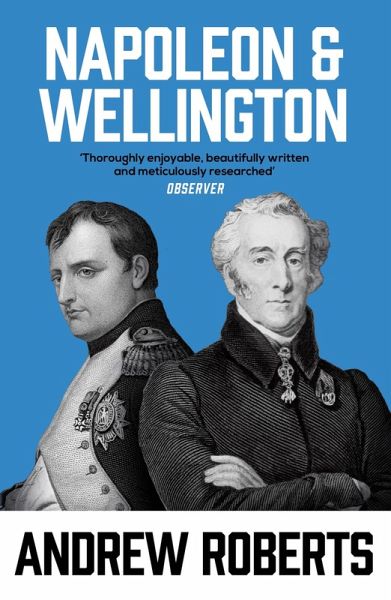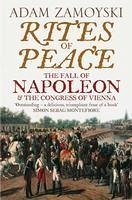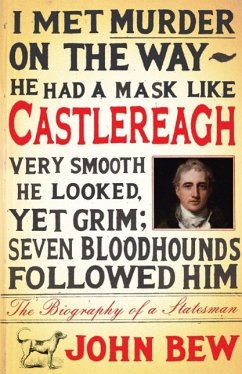
Napoleon and Wellington (eBook, ePUB)

PAYBACK Punkte
0 °P sammeln!
A dual biography of the greatest opposing generals of their age who ultimately became fixated on one another, by a bestselling historian.'Thoroughly enjoyable, beautifully written and meticulously researched' ObserverOn the morning of the battle of Waterloo, the Emperor Napoleon declared that the Duke of Wellington was a bad general, the British were bad soldiers and that France could not fail to win an easy victory. Forever afterwards historians have accused him of gross overconfidence, and massively underestimating the calibre of the British commander opposed to him.Andrew Roberts presents a...
A dual biography of the greatest opposing generals of their age who ultimately became fixated on one another, by a bestselling historian.
'Thoroughly enjoyable, beautifully written and meticulously researched' Observer
On the morning of the battle of Waterloo, the Emperor Napoleon declared that the Duke of Wellington was a bad general, the British were bad soldiers and that France could not fail to win an easy victory. Forever afterwards historians have accused him of gross overconfidence, and massively underestimating the calibre of the British commander opposed to him.
Andrew Roberts presents an original, highly revisionist view of the relationship between the two greatest captains of their age. Napoleon, who was born in the same year as Wellington - 1769 - fought Wellington by proxy years earlier in the Peninsula War, praising his ruthlessness in private while publicly deriding him as a mere 'sepoy general'.
In contrast, Wellington publicly lauded Napoleon, saying that his presence on a battlefield was worth forty thousand men, but privately wrote long memoranda lambasting Napoleon's campaigning techniques. Although Wellington saved Napoleon from execution after Waterloo, Napoleon left money in his will to the man who had tried to assassinate Wellington. Wellington in turn amassed a series of Napoleonic trophies of his great victory, even sleeping with two of the Emperor's mistresses.
'Thoroughly enjoyable, beautifully written and meticulously researched' Observer
On the morning of the battle of Waterloo, the Emperor Napoleon declared that the Duke of Wellington was a bad general, the British were bad soldiers and that France could not fail to win an easy victory. Forever afterwards historians have accused him of gross overconfidence, and massively underestimating the calibre of the British commander opposed to him.
Andrew Roberts presents an original, highly revisionist view of the relationship between the two greatest captains of their age. Napoleon, who was born in the same year as Wellington - 1769 - fought Wellington by proxy years earlier in the Peninsula War, praising his ruthlessness in private while publicly deriding him as a mere 'sepoy general'.
In contrast, Wellington publicly lauded Napoleon, saying that his presence on a battlefield was worth forty thousand men, but privately wrote long memoranda lambasting Napoleon's campaigning techniques. Although Wellington saved Napoleon from execution after Waterloo, Napoleon left money in his will to the man who had tried to assassinate Wellington. Wellington in turn amassed a series of Napoleonic trophies of his great victory, even sleeping with two of the Emperor's mistresses.
Dieser Download kann aus rechtlichen Gründen nur mit Rechnungsadresse in A, B, BG, CY, CZ, D, DK, EW, E, FIN, F, GR, HR, H, IRL, I, LT, L, LR, M, NL, PL, P, R, S, SLO, SK ausgeliefert werden.













